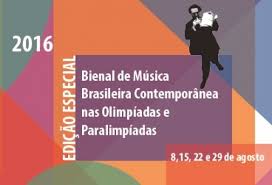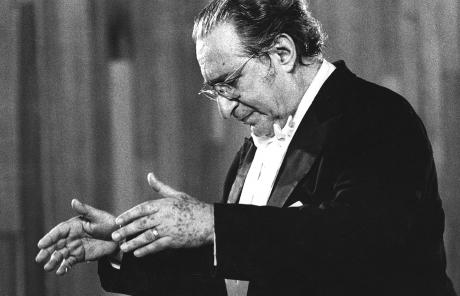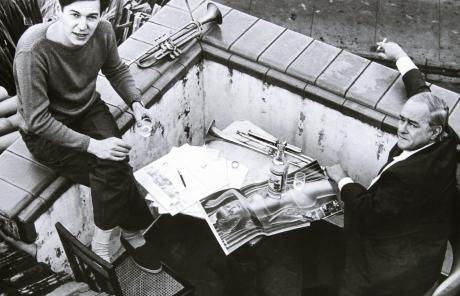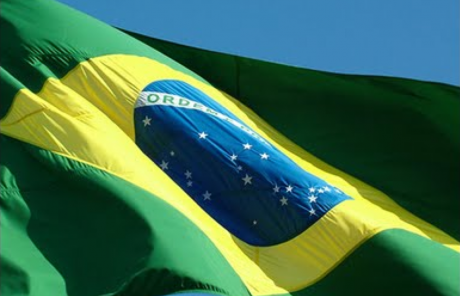Biennials of Contemporary Brazilian Music - a brief history
22/05/2017 - Nivia ZumpanoIn 1969, Edino Krieger organised the first edition of the Guanabara Music Festival. This inspired the realization of the First Contemporary Brazilian Music Biennial, five years later, with the support of Myrian Dauelsberg, administrator of Sala Cecília Meireles, a renowned concert hall in Rio de Janeiro. The first three Biennials were organized by the hall and, from 1981 onwards, by FUNARTE, the national foundation for the arts.
The first Biennial began on October 8th (1975) with the performance of Estruturas Primitivas of the composer Ricardo Tacuchian at Sala Cecília Meireles. The event ended on October 12th with the participation of 35 music writers.
The II Biennial was held between October 15th and 23rd in 1977, in Rio de Janeiro. Enriching the event was the debut of works from renowned musicians such as Esther Scliar and Edino Krieger.
The next edition took place in 1979, during the week of October 12nd to 19th. Carderno B – culture and entertainment section of one of Brazil’s top daily newspapers, Jornal do Brasil, in its report of the event published October 20th called attention to the participation of a significant group of music writers and interpreters. The Biennials were beginning to gain the attention of the media.
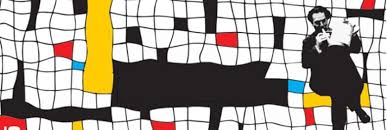
The fourth Biennial, this time under the coordination of FUNARTE, happened in 1981 and included many activities related to the universe of contemporary music such as lectures, release of disks, debates and round-table discussions. In addition to musical presentations, participants could also share their experiences and publicize their own works.
Spear-headed by the works of the composer Ricardo Tacuchian, the fifth Biennial took place from the November 4th to 12th , 1983. This time showcasing a plurality of styles – from the neoclassicism of Camargo Guarnieri to the electro-acoustic Vânia Dantas Leite.
Sixty-seven composers gathered for the VI Biennial of 1985 among whom were established masters and young novices. Some standout pieces were O Canto Multiplicado by Marlos Nobre, Miniópera by Henrique of Curitiba and Dramatic Polimaniquexixe by Jorge Antunes to widespread appreciation by public.
With each new edition, the event consolidated its status on the national contemporary music stage and the number of participants rose to 79 composers by the Biennial of 1987. This edition was held between November 5th - 14th with Ronaldo Miranda as its coordinator. Rodrigo Ciccheli and the vocal group Garganta Profunda were among the artists that made their debut. The focal point of the next edition in 1989 was the premiere of Sinfonia n.14 by Claudio Santoro.
The IX Biennial was held in October 1991, with a new venue for events and other activities – the Leopoldo Miguez Hall at UFRJ’s Escola de Música (School of Music), which eased the access of that university’s students to the event.
A record number of eighty-six composers participated in the tenth edition that took place between October 15th and 23rd, 1993. Honored at the event were Mario de Andrade, Ascendino Nogueira, Camargo Guarnieri and Breno Blauth.
Along with the usual musical activities, the XI Biennial of 1995 pre-released the short film Camargo Guarnieri Encantamento by José Sette and screened the movie Alberto Nepomuceno by Humberto Mauro. Almeida Prado, together with Mario Tavares, Hans-Joachim Koellreutter, Eudoxia de Barros and Cleofe Person de Mattos were awarded the National Music Award.
Teatro Municipal of Rio de Janeiro was packed for the opening concert of the XII Biennial in 1997. The next edition, of 1999 aimed to retrace the course of Brazilian musical nationalism through the ages.
With an increasing number of participant composers at each new edition and a large attentive audience, the Biennial greeted the 21st century as an established event on the city’s cultural calendar. More than 160 composers competed in the 14th Biennial of 2001. Between operas, concerts and CDs, it brought to light new production in Brazilian music.
The 15th Biennial (November, 2003) paid homage to the composer Edino Krieger, one of the event’s pioneers. This time, great emphasis was placed on instrumental and chamber music. Other highlights were the course on music reading in Braille and the exhibition of films and videos about Brazilian music in the Gustavo Capanema Palace.
In 2005 the Biennial celebrated 30 years of existence. This 16th edition, along with the next one in 2007, were marked by the participation of a substantial number of young composers.
The North-American musician, Tom Moore, 110 composers and various music interpreters attended the XVIII Biennial in 2009. Its highlight was the world debut of Edino Krieger’s Pequeno Concerto para Violino e Cordas.
The XIX Biennial in 2011, coordinated by Flavio Silva, honored the composer Almeida Prado who had died the previous year.
The next edition in 2013, continued the event’s tradition of success and in 2015 the XXI Biennial was held between October 10th and 19th with Mario de Andrade and Hans-Joachim Koellreutter as the honorees.
During the Olympic Games 2016 in Rio de Janeiro, FUNARTE produced a special edition of the event called Olympic Biennial. On the agenda were 4 weekends of concerts at the Lopold Miguez Hall of UFRJ’s Escola de Música. In sum, 23 works from renowed composers such as Ernst Mahle, Raul do Valle, Marlos Nobre, Tim Rescala and Pauxy-Gentili Nunes among others were selected for the event.
